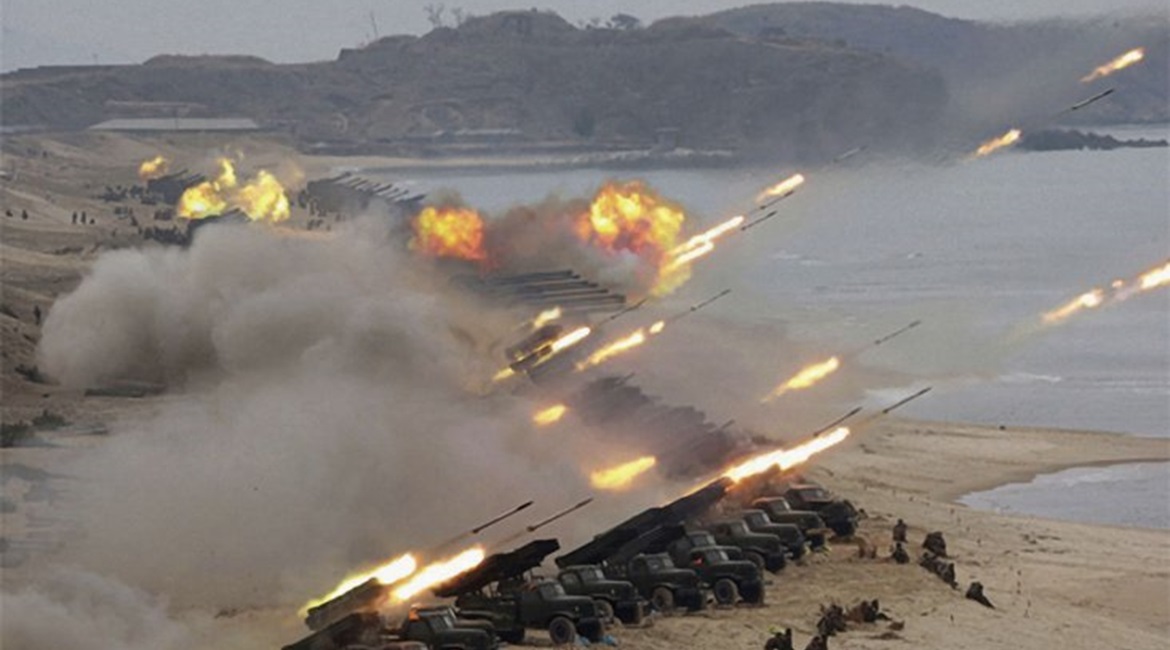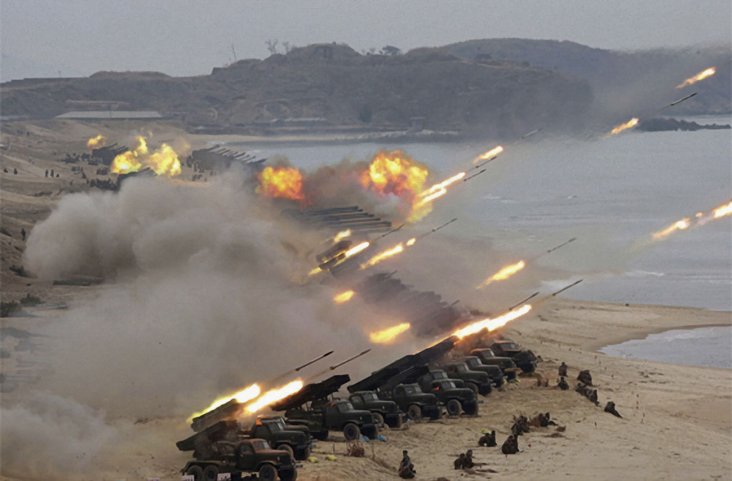
North Korea fired two short-range projectiles towards the East Sea (Sea of Japan) on 2 March, marking Pyongyang’s first such weapon test this year.
South Korea’s Joint Chiefs of Staff (JCS) said in a statement that both projectiles were launched in a north-easterly direction at about 12.37 h local time from an area near the eastern coastal city of Wonsan in North Korea’s Kangwon Province.
The projectiles, which were fired within a 20-second interval, flew a distance of about 240 km and reached an altitude of about 35 km, said the JCS, adding that South Korean and US intelligence authorities were analysing the exact type of projectiles fired.
South Korea’s Yonhap News Agency quoted a JCS officer as saying that Seoul “found some similarities in features between what it [North Korea] fired today [2 March] and those launched last year”.
Pyongyang conducted a total of 13 major weapon tests in 2019 that featured five new weapon systems: a short-range ballistic missile (SRBM) referred to as the KN-23 (South Korean/US Forces Korea designation); another SRBM that is similar in appearance to some of the missiles used by the US Army Tactical Missile System; a large-calibre multiple-launch guided rocket system; the ‘super-large’ multiple rocket launcher (MRL), and a new type of submarine-launched ballistic missile (SLBM) called the Pukguksong-3 (also spelled Pukkuksong-3).
Except for the SLBM, which would have a range of about 2,500 km if fired on a minimum-energy trajectory, all the other weapon systems are short-range and road mobile.
According to South Korea’s JCS, Pyongyang’s latest missile test-firing, of which no images have yet emerged, appears to be have been conducted as part of the “joint strike drills” the Korean People’s Army (KPA) began on 28 February.

Looking to read the full article?
Gain unlimited access to Janes news and more...




